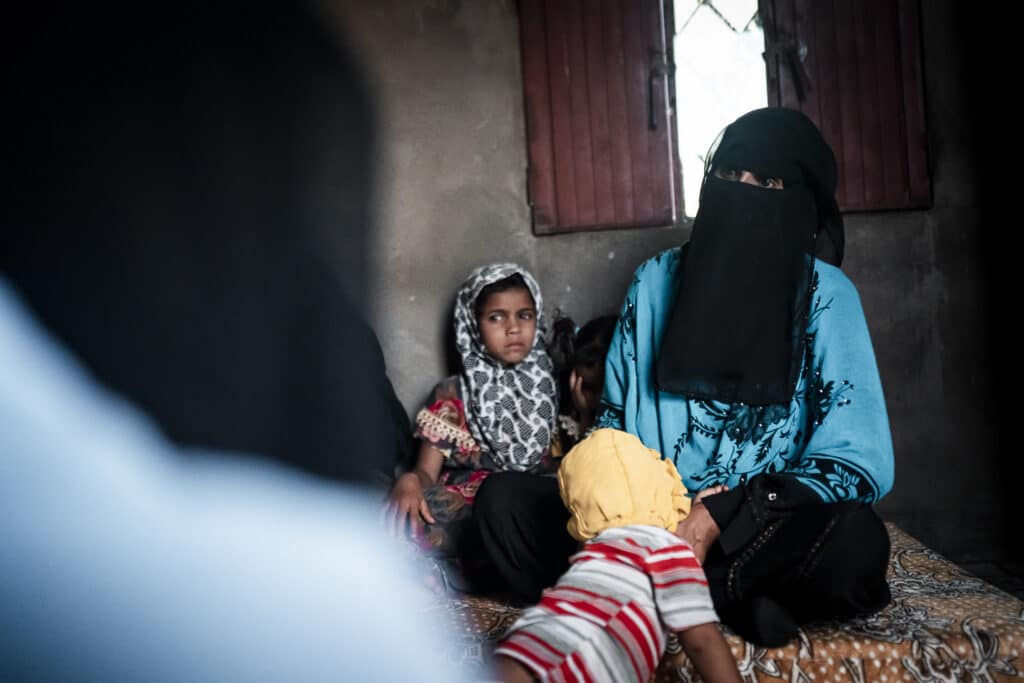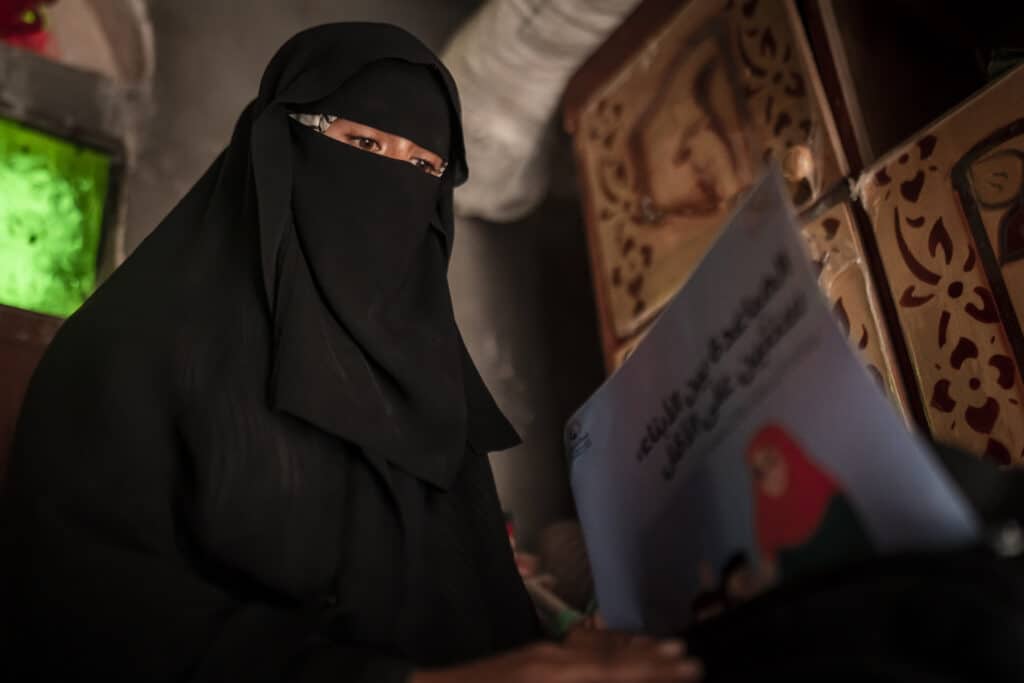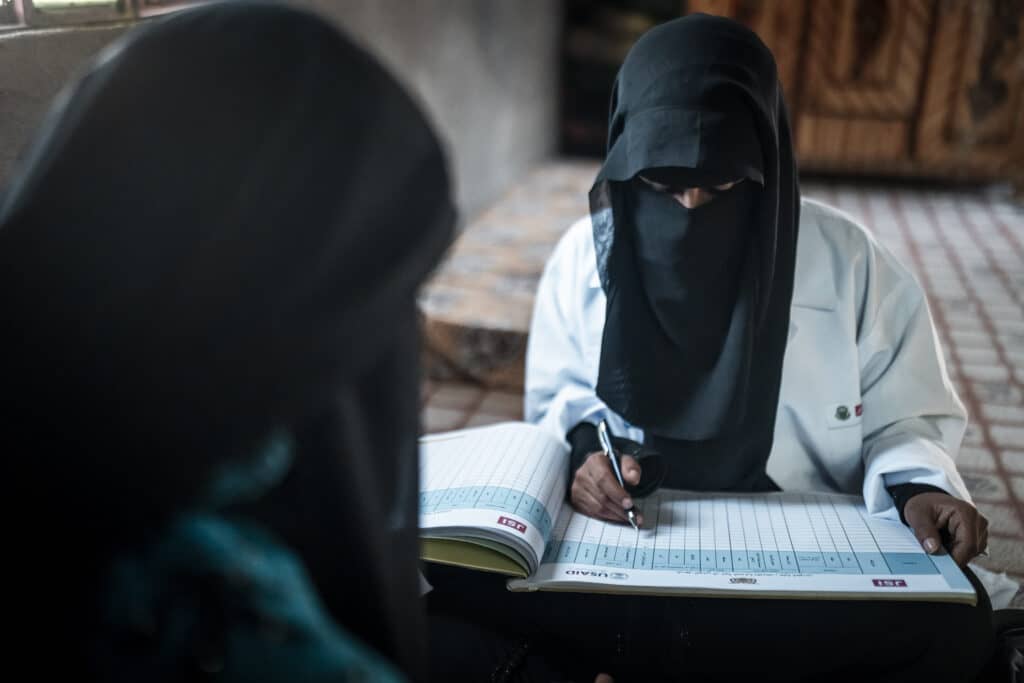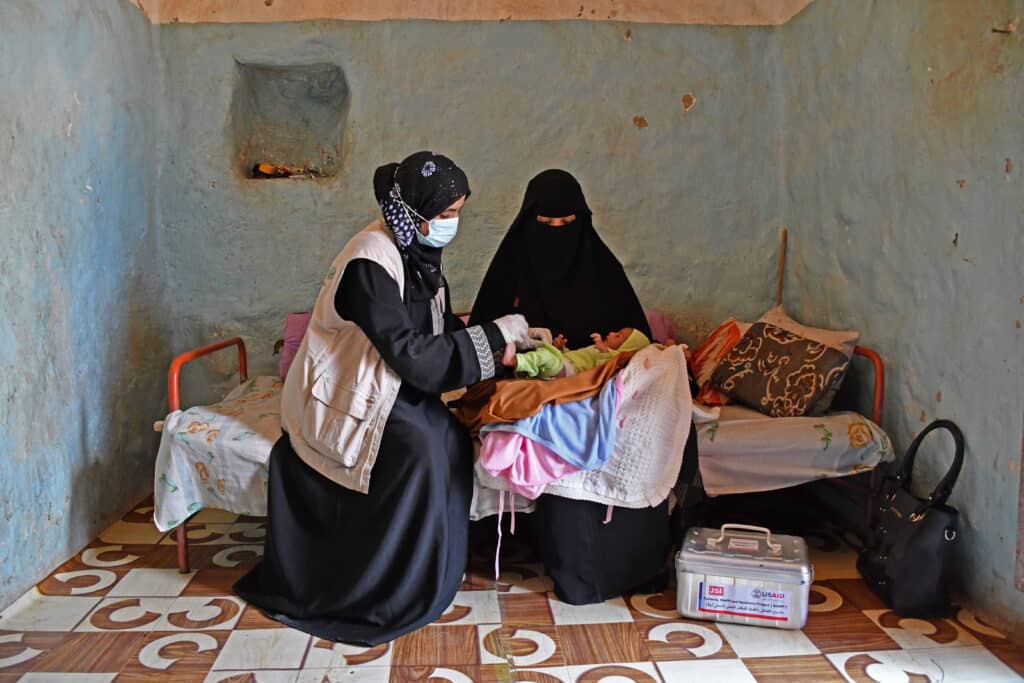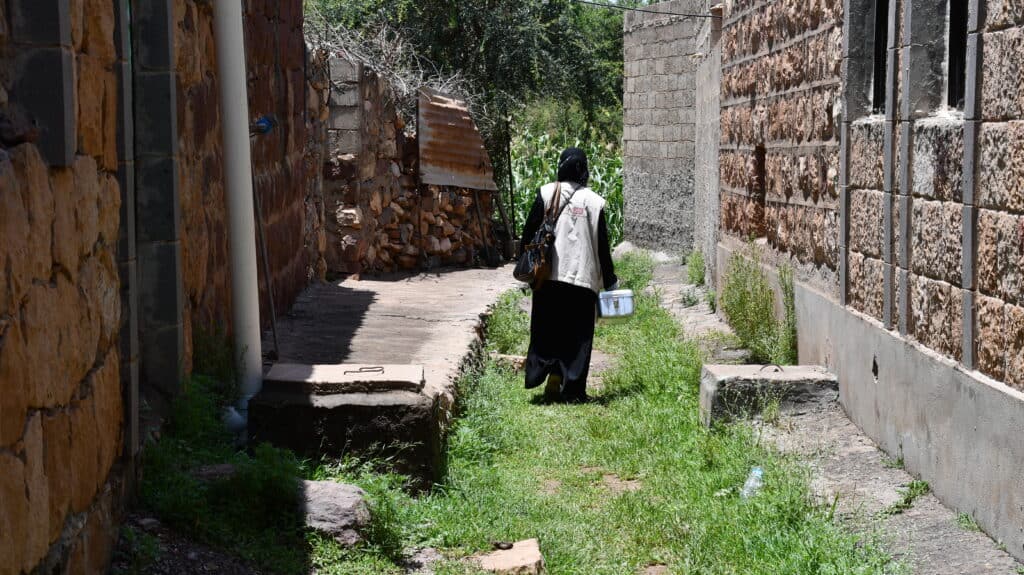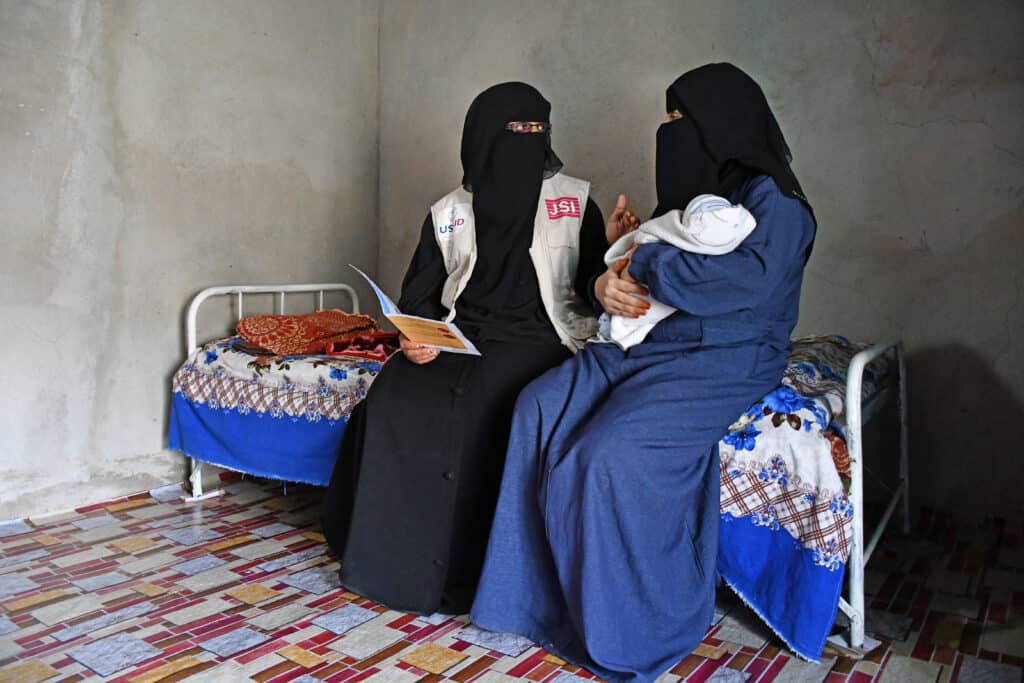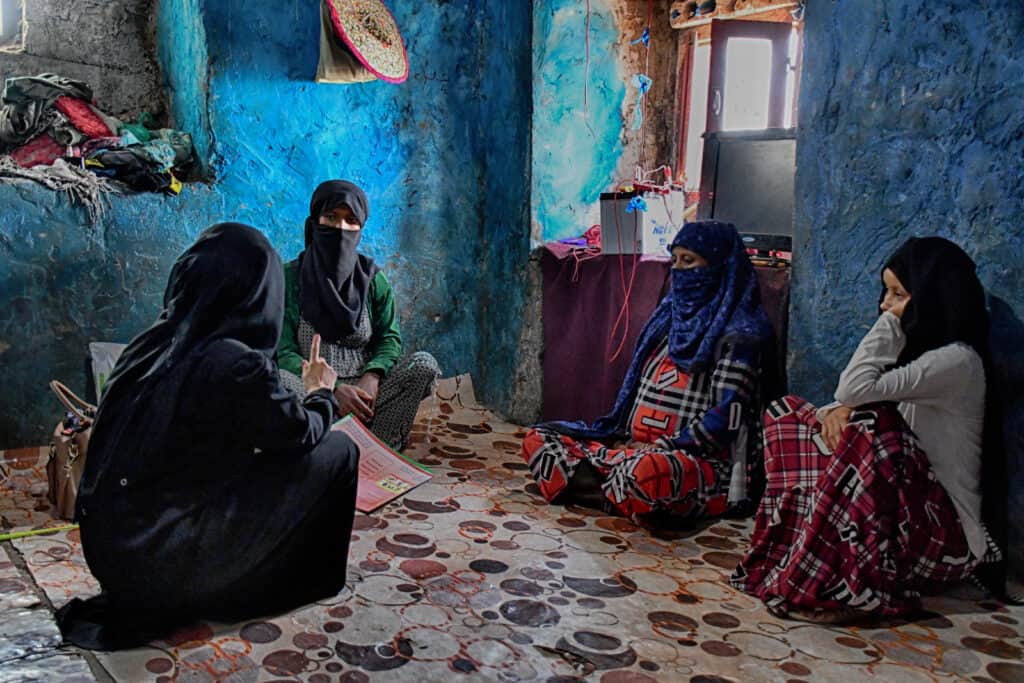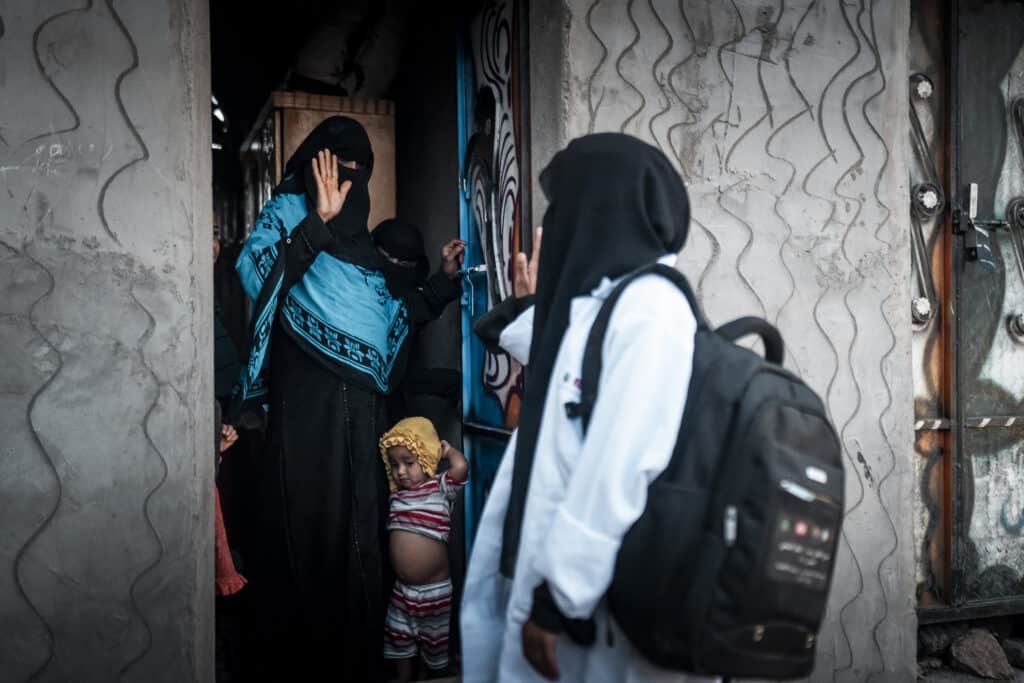This website uses cookies so that we can provide you with the best user experience possible. Cookie information is stored in your browser and performs functions such as recognizing you when you return to our website and helping our team to understand which sections of the website you find most interesting and useful.
Hanan, a community midwife, navigates rough terrain to provide health services to mothers and newborns in her village. Photo: VFX Aden for JSI
Yemen’s prolonged civil conflict, compounded by recurring disease outbreaks such as cholera and measles and the COVID-19 pandemic, has disrupted the country’s health systems. Women and girls are disproportionately affected, as an estimated 77 percent of the 4.3 million internally displaced people are women, newborns, and children.
Additionally, many women and children face barriers—such as distance, security, transportation costs, and financial constraints—to accessing health care. This is especially challenging in a country where more than three-quarters of the population lives below the poverty line, and more than half are considered extremely poor.
Despite these challenges, Yemeni midwives deliver essential services including antenatal care, delivery, and postnatal support. Their dedication and resilience are particularly important because political unrest has deemed about half of the country’s health care facilities only partially functional and greatly understaffed.
The USAID-funded Systems Health and Resiliency Project (SHARP) has narrowed this gap by training more than 230 midwives who shuttle between health facilities and homes in their communities across 10 districts. SHARP, which is implemented by JSI, provides midwives with medical equipment and educational materials that they use to provide high-quality health care services, improve health-related behavior, and link the communities to health facilities in accordance with the country’s referral standard. Their presence has been critical for a great many people who live in the areas where the project works, especially rural and remote communities.
Abeer is a mother of five in Lahj Governorate who receives health services from a SHARP-trained midwife. “The midwife is important in any village,” she said. “If she is unavailable, we have to go to Al-Anad or Al-Musaymir [distant health facilities]. The mother might miscarry unknowingly, or the fetus might die inside her because she was not examined with an ultrasound.”
In addition to access challenges, cultural norms dictate that Yemeni women must get permission from their families to seek professional care. Community midwives provide information to convince men to support the health and well-being of their female relatives by allowing them to get this care.
Hanan, a project-trained community midwife in Lahj Governorate, took a challenging and uncommon path. She traveled to Aden Governorate, four hours from her home, to study midwifery. Since graduating last year, Hanan has supported hundreds of mothers with vital services and follow-up to track their progress. “I chose to be a midwife because mothers are suffering from the long distances to health facilities, and many pregnant women are dying because no one is following their health status,” Hanan said.
Between June 2021 and March 2023, project-trained community midwives provided health services and information to almost 165,000 women, and attended more than 12,500 live births. In the same timeframe, they referred more than 18,000 cases of acute respiratory diseases and diarrhea to various health facilities for treatment. “Because we have a midwife in the village, my health has improved, and I no longer suffer from any illness,” Abeer said.
Each day, community midwives overcome difficulties with unflinching determination. They climb mountains and cross plains, sometimes sacrificing their own health to help others. As we celebrate International Day of the Midwife, we recognize the extraordinary efforts of Yemeni midwives to care for mothers, newborns, and children, ultimately strengthening the country’s fragile health system.

